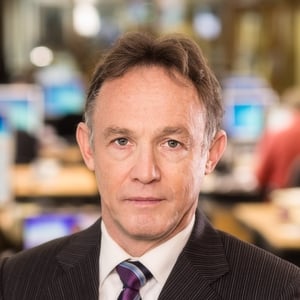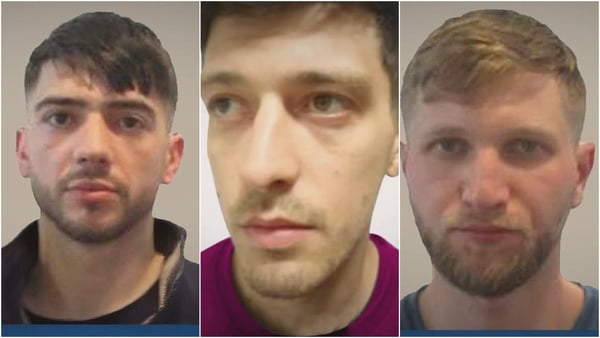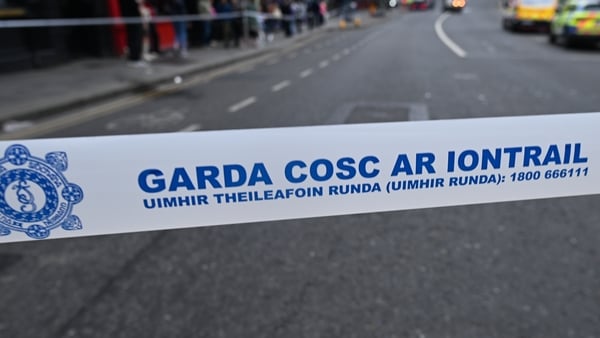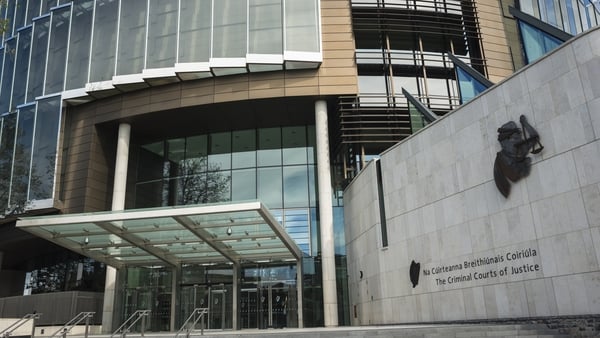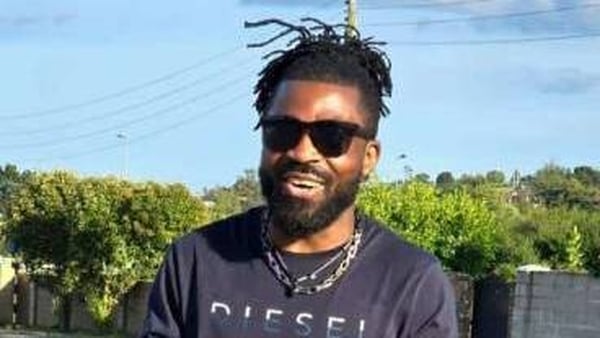It has not been a good week for the CEO, the senior leadership team, the executives, the facilitators and the transport managers of the country's biggest drug trafficking gang.
The members of its board of management - along with the criminal gang they work with in Spain - were for the first time arrested and detained on suspicion of organised crime offences; membership, facilitating, helping and directing a criminal gang.
They were not asked about firearms, threats to kill or gangland murders. 'The Family’ is a feared criminal organisation but it doesn’t do gangland murder.
The leaders have learned from the Kinahan Organised Crime Group, and from what international law enforcement has done to that organisation, that bodies on the streets are bad for business.
The most senior members of ‘The Family’ were questioned this week about their multi-million euro international heroin, cocaine and cannabis trafficking operation and the millions they have earned and laundered from it.
Some estimates put their turnover at €10m a year. Their business has been able to sustain multi-million euro losses in huge cash and drugs seizures.
Gardaí say this is phase two of the operation targeting the organised crime group and its leaders now know they could be in trouble. They know what gardaí have on them because the evidence gathered was put to them during their detentions of up to seven days under anti-gang legislation this week.
They may have been released without charge but they are only at liberty pending phase three of the operation; files to the Director of Public Prosecutions with recommendations they be charged with organised crime offences and brought before the Special Criminal Court.
Gardaí are confident they will reach that phase because 'The Family' has been a target for several years.
Gangland homebirds, international traffickers
‘The Family’ is in the words of head of the Garda Drugs and Organised Crime Bureau Detective Chief Superintendent Seamus Boland: "The primary organised crime gang that’s impacting in this jurisdiction in relation to cocaine and heroin trafficking".
It is centred around brothers from west Dublin who have been known to gardaí for years.
They are big, strong and physically imposing men who "do not get high on their own supply" and "are not to be messed with".
The leader has a drugs conviction and is charged and before the courts on other offences.
The gang’s main administrator, a violent drug trafficker from west Dublin, who also managed its communications and phone systems, deciding who was included in what group for which drug delivery, was also arrested and questioned this week, as was the main logistics manager who works from the south east and another senior figure in Leinster.
What distinguishes ‘The Family’ from other major drug trafficking gangs - and in marked contrast to groups like the Kinahans - its leaders have stayed in Ireland.
They remain close to their roots and are well known in their communities.
The brothers live in comparatively modest but well-furnished and equipped homes in what could be considered the more disadvantaged areas of west Dublin.
They have plenty of cash to spend on luxury clothes, jewellery and cars for themselves and their families.
"If they went to Spain or Dubai, they would be nobodies, out of the city and out of their depth," a senior detective said this week. "They have a presence here within their own community".

However, it is from within these communities that ‘The Family’ has built itself up from a feared street gang of heroin dealing thugs to the biggest transnational drug trafficking gang in Ireland.
It has connections to Turkish heroin traffickers, South American cocaine cartels and Moroccan cannabis dealing networks. It exploits legal businesses to conceal and legitimise its criminal activities and facilitate moving the drugs and laundering the money.
It has therefore become not just a garda target, but one for international law enforcement, including Europol.
This was evidenced by the range of European police forces that joined gardaí this week as they raided the homes of the senior gang members in west Dublin.
Along with the Garda Drugs and Organised Crime Bureau, the Dublin Crime Response Team and the armed Emergency Response Unit, were members of Europol and Spanish and Italian police.
The primary organised crime gang that's impacting in this jurisdiction in relation to cocaine and heroin trafficking
'The Family' is seen by law enforcement as a Mafia-type criminal organisation.
One officer standing at the back of a row of terraced houses in Dublin this week was from Italy’s Anti-Mafia Unit.
Members of the Garda Drugs and Organised Crime Bureau were also with the Guardia Civil in Spain this week when the gang’s main base near Valencia was raided.
Six members of the group working with ‘The Family’ were arrested there. Five are Spanish nationals. The sixth man is from Northern Ireland.
Spanish police also seized 314kg of cocaine and 220 kg of cannabis, around €30m worth of drugs, 12 luxury cars and four trucks, cash, a firearm and ammunition.
The drugs were being vacuum-packed to be smuggled from Spain, through France to Ireland in concealed compartments in the vehicles.
Under the radar
'The Family' has taken a different approach to enforcing its rules and protecting its territory.
The reputation of its key figures is well known and gardaí say they do not feel the need to resort to the most extreme level of violence - gangland murder - an approach which is reflected in the figures.
Gangland murder has plummeted from 22 cases in 2009, to 16 in 2016 and just two last year.
There’s no doubt this reduction is largely due to the success that gardaí have had against the Kinahans and other organised crime groups following the escalation of the Hutch-Kinahan feud in February 2016.
Since then, over 80 Kinahan gang members, gunmen, killers, drug dealers and associates have been convicted and jailed - most by the Special Criminal Court.
These include its most senior figures in Ireland - convicted murderer Freddie Thompson, hitmen Eamon Cumberton and David Hunter, and armourer Declan Brady along with his wife, mistress and brother.
Head of the gang’s UK branch Thomas ‘Bomber’ Kavanagh, and his brother-in-law Liam Byrne, head of the Dublin branch, were jailed in the UK.
This has not gone unnoticed by ‘The Family’ and gardaí say that while violence remains part of its tool kit, it seems to have resiled from lethal violence - the type that brings public opprobrium, community revulsion, political action and a robust police response.

It’s an approach that has served the gang well for many years but now it is the primary target of the specialist garda units investigating organised crime.
This is because gardaí have also taken a new approach to drugs policing, one that is reflected in the latest crime figures released this week.
The Central Statistics Office reported an annual reduction of between 7% and 10% in drugs possession, supply and cultivation, but a 59% increase in those caught importing drugs.
The Garda Commissioner has confirmed this is because the force is focusing on the main traffickers and transnational gangs operating as opposed to addicts and street dealers.
With the dismantling of the Kinahan organisation here, that means that ‘The Family’ has become the primary target.
Heroin trafficking
Drugs trafficking routes are constantly evolving as criminal gangs adapt and diversify their operations.
Afghanistan is the primary source for heroin in Europe and is routed from the Middle East to Europe through the Balkans.
The United Arab Emirates - where the Kinahans and other transnational drug traffickers are based - has also emerged, according to Europol, as a significant drugs transhipment point and hub for criminal activities.
But Turkish networks dominate wholesale heroin trafficking to Europe which relies on the use of global container transport and ferries departing from Turkey.
‘The Family’ gang made its connections with the mafia there years ago through UK-based heroin dealers, two of whom were caught in Ireland - each with €1m worth of drugs.
Ali Adnan Duran was jailed in 2020 for nine years while Kuldip Singh was jailed the following year for three years. He has since been released.
Cannabis and cocaine routes
Cocaine is trafficked to Europe from the producer countries of South America by air and sea using a range of methods and routes.
The largest seizures have been found hidden in cargo ships, mainly in shipping containers departing from Central and South American ports.
MV Matthew brought 2.2 tonnes of cocaine, worth over €157m, to Ireland in September 2023, the largest single seizure here. Eight foreign national men have pleaded guilty and are to be sentenced at the Special Criminal Court.
Cocaine is also transited through the Caribbean, north and west Africa, including the islands off the west African coast, and this is a route favoured by 'The Family'.
The discovery last Tuesday of 6.5 tonnes of cocaine in Portugal is indicative of the quantities that the South American cartels are trafficking to the Iberian peninsula for further distribution to mainland Europe and Ireland.
The drugs were discovered 500 nautical miles south of the Azores in a specially-made dispensable submarine, which had come from Brazil with a crew of five from Brazil, Columbia and Spain.
North Africa and the western Balkan regions are also major sources for the gang’s cannabis with criminal networks there involved in the movement of cocaine.
Deep concealment
Spain has been the key to 'The Family' gang’s drug routes.
Although gardaí say that it has collaborated with other organised crime groups for a share of the huge consignments trafficked on motherships and fast boats, the Irish gang also operates a sophisticated logistics and transport network.
To move the drugs from Spain to Ireland, 'The Family' deploys deep concealment methods in cars, trucks and trailers with secret compartments, false bottoms and cloned number plates.
Heavy engineering and precision design is required to custom build these hidden storage units deep within trailer doors and industrial machinery.
The shipments are invisible to the naked eye and can only be discovered by specialist X-ray, such as the Revenue/Customs Nuctech MT1213DE high-energy mobile scanner that was bought for over €2m four years ago.
The scanner can be deployed to any port, crime scene or warehouse in the country and has already made its money back.
Millions of euro worth of cocaine, heroin and cannabis have been found in these compartments, but gardaí estimate that for every one massive seizure they or Customs make, as many as ten may have gotten through.

One such major seizure, or the incarceration of key figures in Ireland or other European countries, has not impacted the gang’s ability to move its product.
If one truck or one driver is caught, one storage or distribution centre raided, or one deep concealment uncovered, it can be written off as an occupational hazard and another found.
The logistics network which 'The Family' operates means that it has access to several trucks, refrigerated containers and drivers, many of whom do not know that drugs have been hidden deeply in their vehicles.
The gang also moves drugs across the border with Northern Ireland. It has historic and close links to smugglers and the IRA. Gardaí say they have learned much from the illicit cross-border trade in products such as diesel, drugs, fuel and angel dust.
The ghost breakthrough
The arrest of 12 men in Ireland and Spain this week from what Europol has described as "an Irish high-risk criminal network" is a direct result of the infiltration of the gangs communication system, the criminal phone network known as 'Ghost'.
'Ghost' was set up ten years ago by a 33-year-old Sydney man who lived with his parents.
The network was attractive to criminals because users could purchase it without supplying any personal information.
It used three encryption standards and offered the option to send a message followed by a specific code which would then self-destruct all messages on the target phone.
This allowed criminal gangs and members to communicate securely, evade detection, counter forensic measures and coordinate cross-border illegal operations.

'Ghost' was used solely by criminals for large-scale drug trafficking, money laundering and extreme violence, including homicides, as well as other forms of serious and organised crime.
Ireland had the second highest number of users.
However, as a result of the infiltration of the encrypted network, gardaí carried out 33 searches last September and seized over €15.5m worth of cocaine, cannabis and heroin as well as €350,000 in cash and cryptocurrency.
Twenty-seven premises, including the homes of some of the most senior organised crime figures in the country, were searched, and two cryptocurrency keys, 27 laptops, 126 other mobile devices, 200 SIM cards, six Rolex watches and a 2021 Range Rover were recovered.
Forty-two 'Ghost' phones were seized along with 153 other phones.
Gardaí believe they have compromised the criminal operations of 'The Family' and have been able to identify structures, networks, connections, drug routes, suppliers, records and internal communications.
Crucially, gardaí have also been able to identify the key figures in the drug trafficking network by tracing the 'Ghost' user handles back to individual gang members.
End game
It was the late Assistant Commissioner John O'Driscoll who recognised the necessity to target 'The Family' after the Kinahan’s network here had been dismantled.
Gardaí made their first major seizure from the gang in October 2020 when they seized over €4m of its cash as well as three vehicles in counties Laois and Kerry.
His legacy continues as three officers who worked with him 30 years ago in the Dublin North Central Drugs Unit, and took down major dealers like Tony Felloni and Michael 'Roly' Cronin, are running the operations against 'The Family'.
Angela Willis is Assistant Commissioner in charge of Serious and Organised Crime, Paul Cleary is in charge of the Dublin Crime Response Team and Assistant Commissioner for policing Dublin while Séamus Boland is head of the Drugs and Organised Crime Bureau.
All three were trained by and worked under John O'Driscoll in drugs policing.
They might pack their bags, but we'll be bringing them back
Since the €4m cash seizure there have also been other significant seizures of drugs and cash from 'The Family'.
These include the recovery of €3m worth of cocaine, cash and six scrambler bikes in Clondalkin last July and the seizure of €8 worth of drugs and €1m in cash just over two weeks later in The Ward, Co Dublin.
Two months later another €6m worth of cocaine was found in Wexford with another €10.5m discovered earlier this year.
The investigation into the activities of 'The Family' has been continuing for over five years and while gardaí accept that it's "a long game", and that it may be some time before people are brought before the courts, they also believe the arrests this week mark the beginning of "the end game".
When the pressure has come on Irish drug dealers at this level in the past, they have emigrated to Spain, the Netherlands and Dubai in the hope of staying out of jail.
"They can leave but they will be brought back," a senior officer said this week.
"They know what we have, they know what’s coming. They might pack their bags, but we'll be bringing them back."

